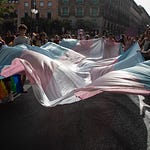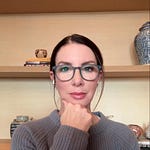[This morning, I spoke at the ADL’s Together Against Hatred Rally on Capitol Hill, alongside some amazing folks who are committed to fighting antisemitism and all other forms of hatred, specifically calling on Congress to fully fund the Nonprofit Security Grant Program to protect synagogues, schools, and other public spaces. Video is available here, and the full text of my remarks are below.]
It seems one of the worst things you can do these days is admit when you don’t know something. We’ll forgive a lot of things in this country, but for some reason, admitting when we don’t know something is often taboo.
Now, that’s quite a problem for me because I have found that the older I get, the more I realize just how much I don’t know.
I did not grow up learning much about Jewish culture or history. I am not an expert on antisemitism. There are so many things I have not yet learned about the history of hatred against the Jewish Community.
But the thing is… I have never been asked by any Jewish person to become an expert on antisemitism. I have never been asked by any Jewish person to become an expert on Jewish history and culture.
All I have ever been asked by friends and colleagues and loved ones in the Jewish community is to stand beside them against antisemitism.
I know antisemitism exists because the Jewish community tells me antisemitism exists.
And that’s all I need to know.
In my mid-20s, I worked at the U.S. Holocaust Memorial Museum, and at the end of the permanent exhibition–the main exhibition–there is a quote by Martin Niemoller. You’ve probably heard of it. He talks about how he didn’t speak up when other groups were persecuted by the Nazis because he wasn’t part of those groups. But finally, when the Nazis came for him, there was no left to speak up.
It’s a powerful quote. It’s an important lesson. But respectfully, I must admit that I take issue with his premise. I take issue with the implication that the safety and dignity of another community only becomes important when my community’s safety and dignity are threatened.
I am not here today because Jewish leaders speak up for LGBTQ rights, although they do.
I am not here today because my friend Jonathan Greenblatt speaks up against transphobia, although he does.
I am not here today because the ADL advocates for the safety and dignity of all communities, although they do.
I am not here today because I have Jewish friends and loved ones and colleagues and neighbors, although I can tell you that my life wouldn’t be worth living without them.
That’s not why I’m here, and I don’t need Jewish people in my life to understand that there is a crisis of antisemitism in the United States right now.
I don’t need to have Jewish friends to acknowledge that there were nearly 4,000 incidents of antisemitism in the United States last year.
I don’t need to have Jewish loved ones to mourn those who were murdered at the Tree of Life synagogue in 2018 and to recognize how unchecked antisemitism in our country led to their murders and to understand why it is imperative that Congress authorize full funding for the Nonprofit Security Grant Program.
I don’t need to have Jewish colleagues to speak up when I hear or see something that is antisemitic or to understand the implication of violence against the Jewish community when Jewish graves are vandalized.
I don’t need to have Jewish children to be horrified by what Jewish children and young people are experiencing right now on campuses across the country and to understand that I have an obligation as a grown adult to protect any child from violence and discrimination.
Yesterday, during a session at ADL’s National Leadership Summit, I listened to a young woman, Alison Stone, a student leader, talk about her experience of a professor on her campus saying something antisemitic. And her primary concern in that moment was trying to figure out how she should approach her professor about this without being accusatory or condemnatory.
No child in this country, no young person in this country, no student in this country should ever feel that their right to safety and dignity should revolve around the discomfort of a grown adult. Let alone an authority figure.
One of my best friends has a daughter in high school. She’s smart, empathetic, and has a good head on her shoulders. She has become my niece. I have become her aunt. She is also a young Jewish woman in the United States in 2023.
I worry about her safety. But moreover, I wonder if I am doing enough to be an example to her: that we should never need any other reason to speak up against hatred beyond the existence of that hatred.
I want my niece to understand that she doesn’t need to know everything about a community in order to stand beside them. I want her to know that saying “I don’t know, but I want to listen and learn” is a sign of strength and character.
I want her to know that all of us, every single one of us, are imperfect and none of us know everything and the greatest collective strength we have as humanity is the opportunity to learn from each other.
I want her to know that there is so much I don’t know, but this I do know:
There is no excuse for antisemitism. Period. Those of us who are not Jewish need to speak out against it wherever it appears. That is our moral obligation.
If you've ever wondered if you would have been the kind of person to speak out against anti-Jewish hatred in the '30s and '40s, you don't need to wonder today. Vicious antisemitism is out in the open. Here’s your moment to join me in listening and learning. Here's your moment to say something about it.
When are you speaking up against it?














Share this post